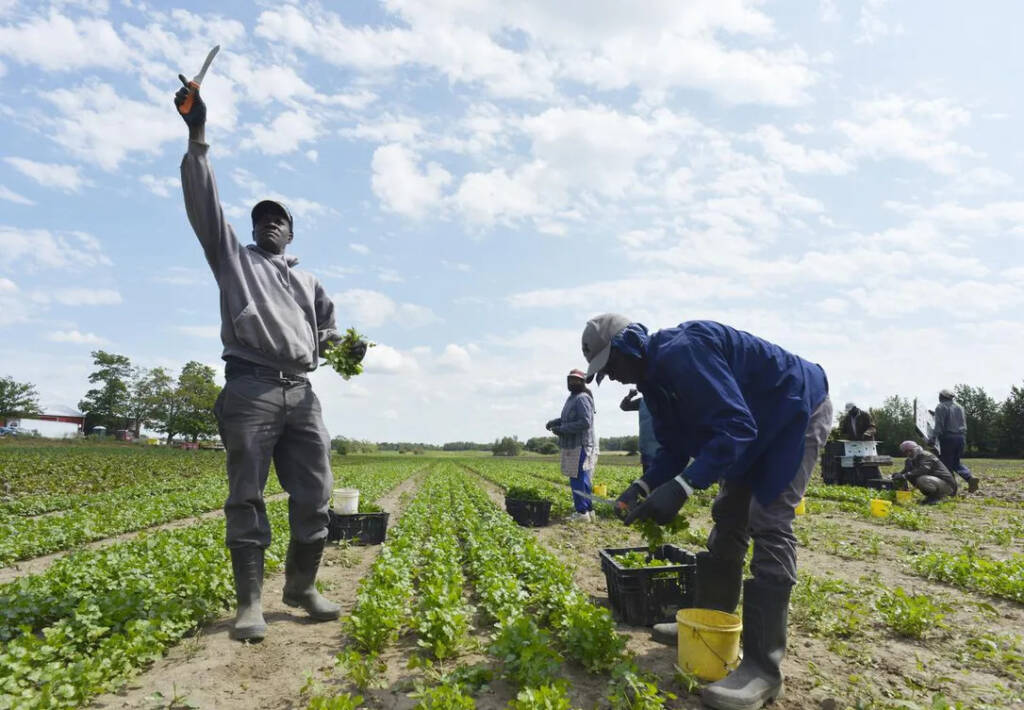A growing percentage of Canadian workers are immigrants. According to Lu and Hou (2019), 613,200 foreign nationals in Canada had work permits in 2016, more than twice as many as there were ten years prior (294,300 in 2005). The farm migrants have been cordially welcomed to Canada by Trudeau. A number of initiatives have been available to farm enterprises wishing to replace their employment gaps by hiring foreign workers since the mid-1960s when it became one of the primary industries in Canada to receive foreign workers.
Poor living conditions of farm migrants
From 2005 to 2017, the percentage of foreign labourers employed in agriculture increased steadily. The percentage of foreign employees in agriculture climbed from 6.2% in 2005 to 13.2% in 2014 and then to 16.1% in 2017. 50,800 foreign employees were working in agriculture in 2017, compared to 17,200 in 2005.
However, the living and working conditions of these migrant farm labourers paint a completely different picture. Days before a migrant worker died in Norfolk County, Jamaican migrant agricultural labourers in the Niagara Region penned an open letter to Jamaica’s Ministry of Labour asking for additional assistance in the face of what they call “systematic slavery.”
Read More: Trudeau starts building ‘detention centres’ for Canadians in the name of “isolation camps”
Recent research that contains accounts from migrant farm workers in Canada paints a gloomy picture of their housing arrangements, from limited access to bathrooms to congested living conditions.
“We are living in conditions of modern-day slavery,” said one migrant worker, in one of the anonymous testimonies in the report released by the Migrant Rights Network and Food & Farmworkers Working Group.
“We have no indoor bathroom. We have to use a portable toilet outside or pee in a bottle. No internet or television. No dryer or washing machine…. It feels worse than if we were in prison.”
One testimony in the report describes up to 60 people sharing one living space, with a bathroom and kitchen.
“We as farm workers should feel at home while we are here and not like we are in prison.”
The report also cited concerns around employer control of workers, mentioning surveillance and control over their movement.
Doug Ford, a pawn of Trudeau
However, a crucial aspect needs to be noted in light of the recent occurrence involving the death of a Jamaican agricultural worker in Ontario as a result of appalling living and working conditions. Despite Ontario being the centre of conservatism, which means Doug Ford leads the conservative provincial government.
However, it is now apparent that Doug Ford and Justin Trudeau retain close ties. For instance, Trudeau and Doug Ford joined forces to declare support from the federal and provincial governments for a $3.6 billion investment in electric vehicle manufacturing facilities in Windsor and Brampton. This amply demonstrates how Doug Ford is turning into Trudeau’s pawn in the province of Ontario.
In another instance when Trudeau used Doug Ford as a pawn, the Ontario Ministry of Transportation essentially closed down 39 trucking companies after a crackdown on Freedom Convoy protestors.
Read More: Saskatchewan minister rips into Trudeau for playing with the lives of Farmers
The aforementioned incidents essentially demonstrate how, despite being governed by the progressive conservative party, Ontario is increasingly serving as a centre for the dissemination of liberal views under Doug Ford. And returning to the situation of these farm migrants in Canada, he chose not to take any action despite the fact that Trudeau himself acknowledged the appalling conditions of these migrant labourers.
For instance, back in 2020 he made a statement, “We know that there are many issues—from living conditions to the fact that they’re tied individually to particular companies or employers, to various challenges around labour standards—that require looking at,” Mr Trudeau said. “We could also look at pathways to citizenship that could give people more rights. … We should always take advantage of moments of crisis to reflect: Can we change the system to do better?”
However, it is evident that he has not indicated any appreciable change in the circumstances of these farm migrants. The phrase “Slavery in the 21st Century” so very much sums up the narrative. Welcome to Trudeau’s Canada!
https://www.youtube.com/watch?v=m5kSiYfH1I0
